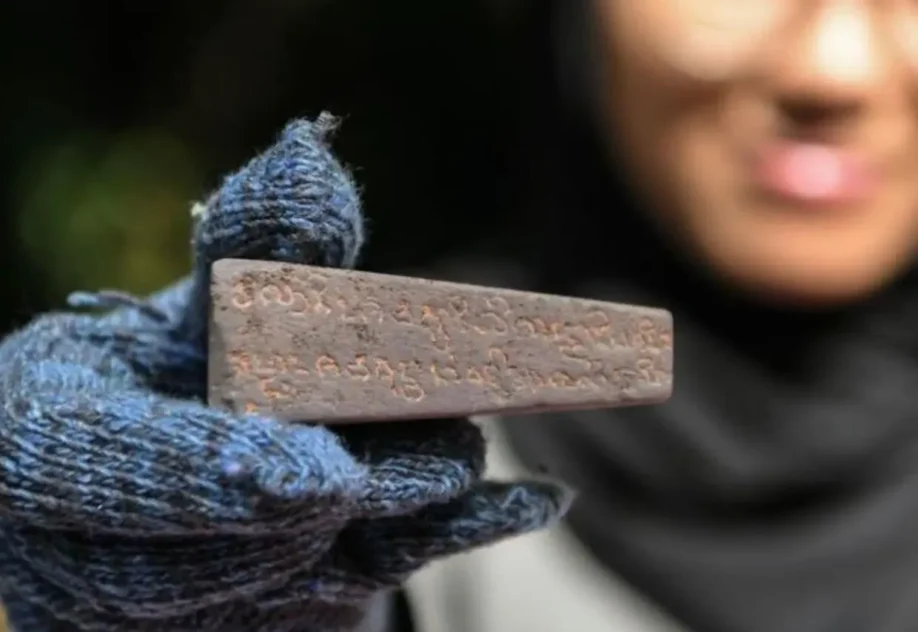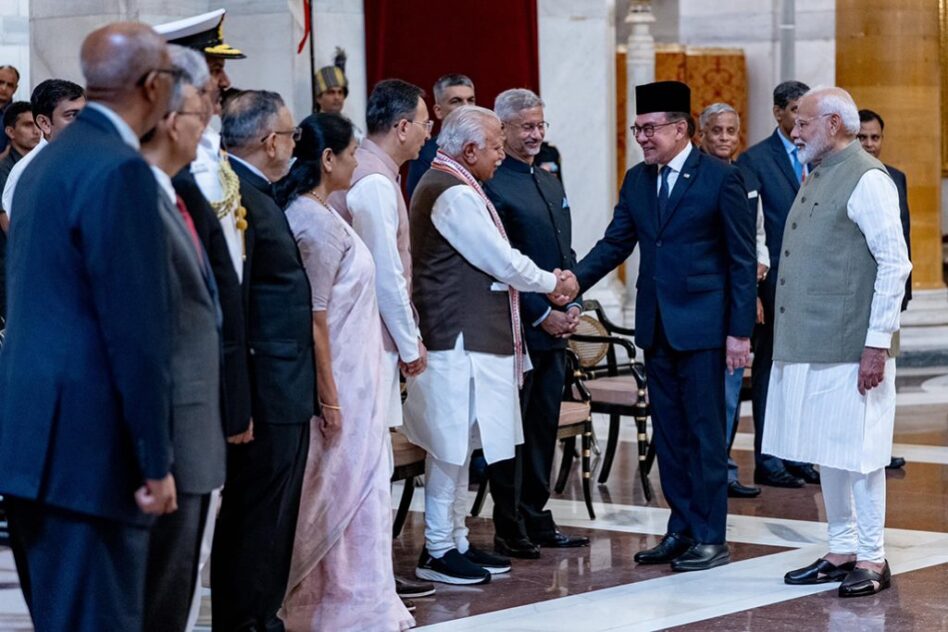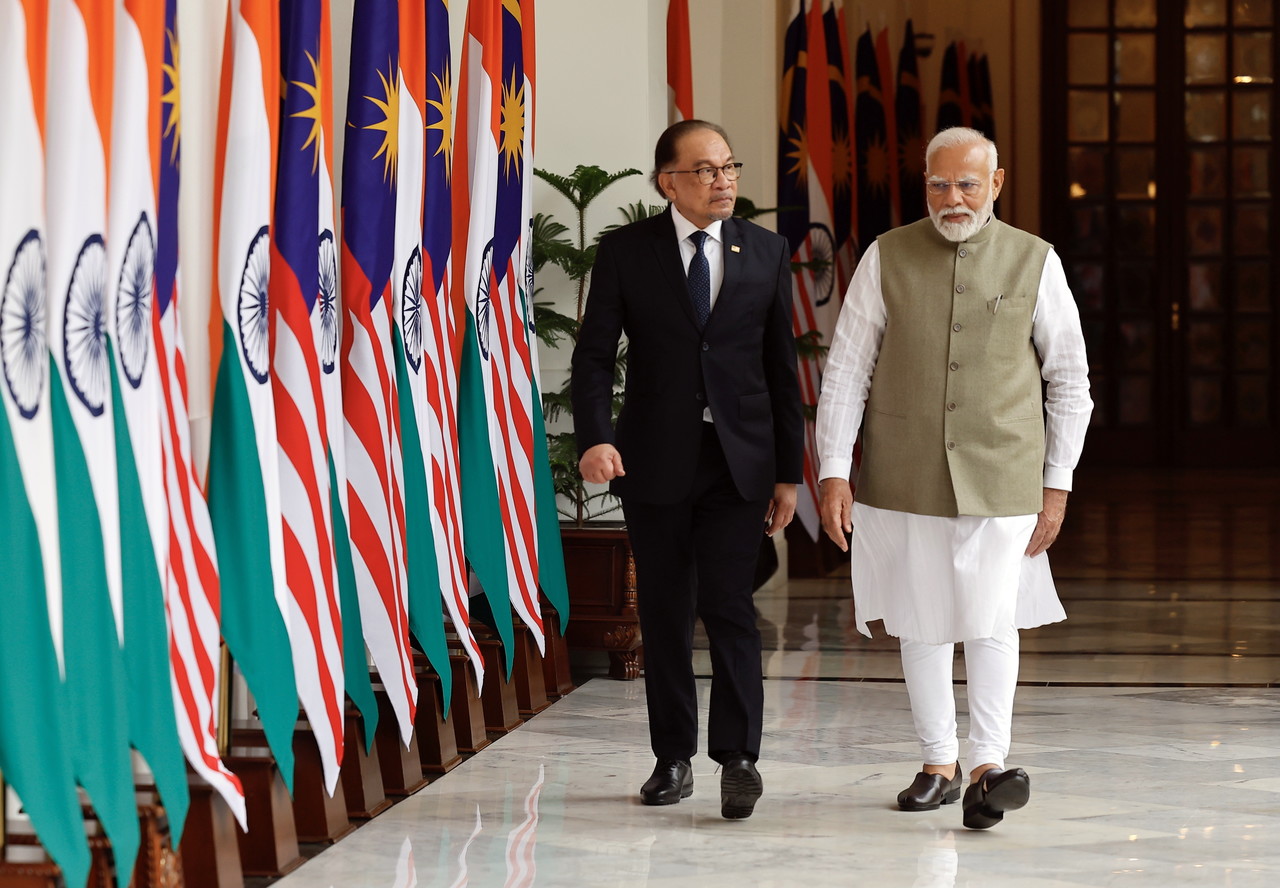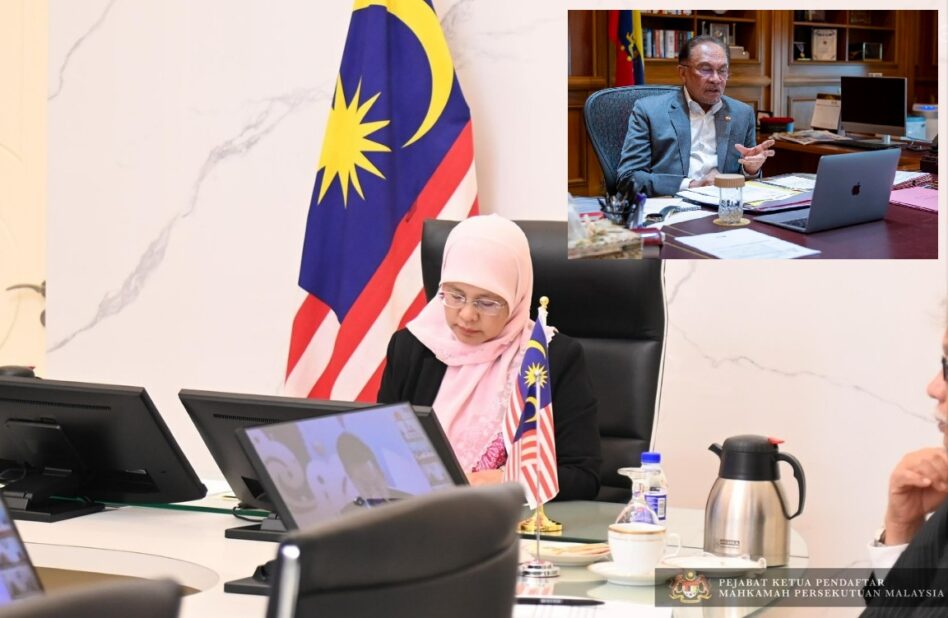INDIA and Malaysia have maintained a longstanding historical connection characterised by a shared cultural heritage, where the coexistence of multiple religions and ethnicities forms the foundational aspect of their societies.
Recently, a noteworthy archaeological finding occurred in Bukit Choras in Yan, Kedah. Researchers from Universiti Sains Malaysia (USM) uncovered a nearly intact, life-sized Buddha statue that dates back to the eighth or ninth century.
This statue predates the renowned Angkor Wat in Cambodia and Borobudur in Indonesia. Crafted from stucco, a composite of lime, water, and sand, the statue was discovered in a meditative posture within the largest Buddhist temple at the site.
Additionally, inscriptions in Sanskrit and fragments of pottery were found in proximity to the statue. This discovery underscores the historical importance of the Kedah Tua civilisation and its influence on the maritime trade networks of Southeast Asia.

This is one of many historical evidence that Malaysia should strengthen its relationships with India in present and future as India’s exponential economy growth in past years and emerging global military power will help in many ways for its growth.
The recent trip undertaken by Prime Minister Datuk Seri Anwar Ibrahim to India, along with the joint declaration regarding the India-Malaysia Comprehensive Strategic Partnership, has broadened the scope of collaboration between the two nations in various dimensions.
The India-Malaysia Comprehensive Strategic Partnership
The joint declaration regarding the India-Malaysia Comprehensive Strategic Partnership was released on Aug 20, 2024.
This partnership, which originated in 2015, has progressed into a multifaceted alliance, now recognised as a Comprehensive Strategic Partnership.
During his visit to India, Anwar was accompanied by a high-ranking delegation that included ministers from diverse sectors.
The discussions encompassed a broad spectrum of topics, such as political relations, defence, security, economic and trade matters, digital technologies, start-ups, fintech, energy (including renewable sources), healthcare, higher education, culture, tourism, and interpersonal relations.
A number of Memoranda of Understanding (MOUs) were signed, focusing on collaboration in areas such as recruitment, employment, worker repatriation, Ayurveda and traditional medicine, digital technologies, culture, arts and heritage, tourism, public administration, governance reforms, youth and sports, and financial services.

Both prime ministers recognised the longstanding friendship and socio-cultural connections between the two nations, highlighting the significant contribution of the Indian diaspora in Malaysia to the enhancement of these relationships.
This partnership is designed to further strengthen and deepen the engagement between India and Malaysia across multiple sectors.
Digital collaboration between India and Malaysia
The digital collaboration between India and Malaysia holds the potential to yield significant advantages for both nations across a multitude of sectors.
Indian technology firms can tap into new markets within Malaysia, thereby fostering growth and diversification.
Such collaboration is likely to facilitate the exchange of innovative concepts and technologies, thereby enriching India’s technological landscape.
Collaborative initiatives can also create avenues for skill enhancement and training, which would be advantageous for the Indian labour force.
An increase in digital trade and investment could stimulate India’s economy and generate new employment opportunities.
Conversely, Malaysia stands to benefit from India’s proficiency in information technology and digital solutions, which can aid in the advancement of its own digital infrastructure.
This partnership can expedite the development of Malaysia’s digital economy, promoting innovation and entrepreneurial ventures.
Collaborative efforts in the realm of cybersecurity can bolster Malaysia’s capacity to safeguard its digital assets and infrastructure.
Additionally, partnerships focused on digital education and training can enhance the skills of the Malaysian workforce, thereby increasing its competitiveness in the global arena.
The collaborative research and development projects between these two countries can lead to significant advancements in emerging technologies such as artificial intelligence, blockchain, and the Internet of Things (IoT).
Both nations can cultivate a dynamic start-up ecosystem, characterised by enhanced opportunities for funding, mentorship, and market access. Joint initiatives can also promote digital inclusion, ensuring broader access to digital tools and services for populations in both countries.
By strengthening digital collaboration, both economies can become more resilient to global economic fluctuations and technological disruptions.
This partnership has the potential to substantially elevate the digital capabilities of both nations, fostering innovation, economic development, and shared prosperity.
Cybersecurity collaboration

In the interim, India and Malaysia have the opportunity to collaborate on cybersecurity in various significant manners, thereby strengthening their digital security and resilience.
The following are essential areas for potential collaboration:
- Establishing collaborative cybersecurity centres to enable real-time sharing of information regarding cyber threats and vulnerabilities.
- Exchanging threat intelligence data to enhance the understanding and mitigation of cyber threats affecting both nations.
- Implementing joint training initiatives and workshops aimed at improving the competencies of cybersecurity professionals in both countries.
- Offering technical support and expertise to develop comprehensive cybersecurity frameworks and policies.
- Engaging in collaborative research and development projects that focus on emerging cybersecurity technologies, including artificial intelligence, blockchain, and quantum computing.
- Creating innovation hubs to promote the advancement of new cybersecurity solutions and technologies.
- Working in unison to align cybersecurity standards and best practices, thereby ensuring a cohesive approach to digital security.
- Collaborating on the formulation of cybersecurity policies and regulations to tackle shared challenges and threats.
- Establishing joint incident response teams to effectively manage cross-border cyber incidents and attacks.
- Conducting regular cybersecurity drills and crisis management exercises to enhance preparedness and response capabilities.
- Promoting partnerships between Indian and Malaysian cybersecurity firms to create and implement advanced security solutions.
- Initiating joint public awareness campaigns to inform citizens about cybersecurity best practices and potential threats.
- Collaborating to safeguard critical infrastructure, including energy grids, financial systems, and communication networks, from cyber threats.
- Developing stringent security standards for 5G networks to guarantee safe and secure implementation.
- Actively participating in international cybersecurity forums and initiatives to influence global cybersecurity policies and standards.
- Formalising cooperation and commitment to joint cybersecurity efforts through the signing of bilateral agreements.
These collaborative efforts can significantly enhance the cybersecurity posture of both India and Malaysia, making them more resilient to cyber threats and fostering a safer digital environment.
In summary, this strategic alliance will yield significant advantages for both nations.
Consequently, it is imperative for our prime minister to dissuade specific factions within the coalition and others who exploit racial and religious issues to undermine this partnership for their own political gain.
It is essential that we prioritise the nation’s interests above our individual political ambitions. – Aug 23, 2024
R Paneir Selvam is the principal consultant of Arunachala Research & Consultancy Sdn Bhd (ARRESCON), a think tank specialising on strategic national and geo-political matters.
The views expressed are solely of the author and do not necessarily reflect those of Focus Malaysia.
Main image: Bernama









